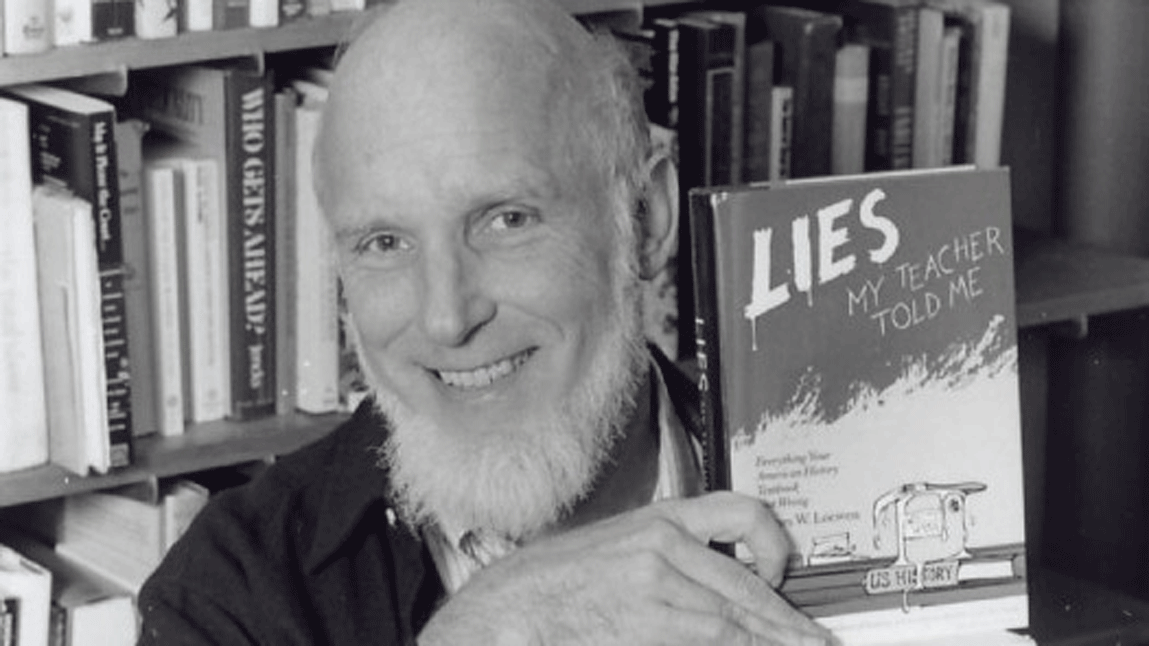UVM Professor Emeritus James Loewen, an educator and author who made a broad impact on our understanding of race relations in the United States, died late August at the age of 79.
Loewen was professor of sociology at UVM from 1975-1995, a period in which he published his landmark book “Lies My Teacher Told Me: Everything Your American History Textbook Got Wrong.” The book is often cited as a companion piece to Howard Zinn’s “A People’s History of the United States.”
He grew up in Decatur, Ill., and was educated at Carleton College and Harvard. He became fascinated with the Black experience in the deep South while taking up his first academic position in 1968 as a professor of sociology at the historically Black Tougaloo College in Mississippi.
He was shocked to discover that his students largely accepted the narrative that local Black governance during the post-Civil War Reconstruction failed because of the ineptitude of Black leaders, not because of institutional racism.
Loewen and historian Charles Sallis co-wrote “Mississippi: Conflict and Change,” a history textbook which named the Ku Klux Klan a terrorist organization and argued that the “separate but equal” doctrine only served to widen the opportunity gap between white and Black students.
The book won the 1976 Lillian Smith Award for best Southern nonfiction, but Mississippi school board officials refused to allow it to be used in public schools. The authors sued, and a U.S. district judge ruled the rejection of the textbook was legally unjustified. The American Library Association called it a victory for the “right to read freely.”
Beth Minz, professor emeritus of UVM’s Department of Sociology, credits Loewen with elevating the study of race into the sociology curriculum in the 1970s. “What also stands out to me is how dedicated a teacher he was. He took the profession very seriously.”
“Jim never had an ‘off’ button,” said UVM colleague Nick Danigelis, also a professor emeritus of sociology. “He was always pushing new understanding relating to social inequality. That’s what he lived and breathed.”
